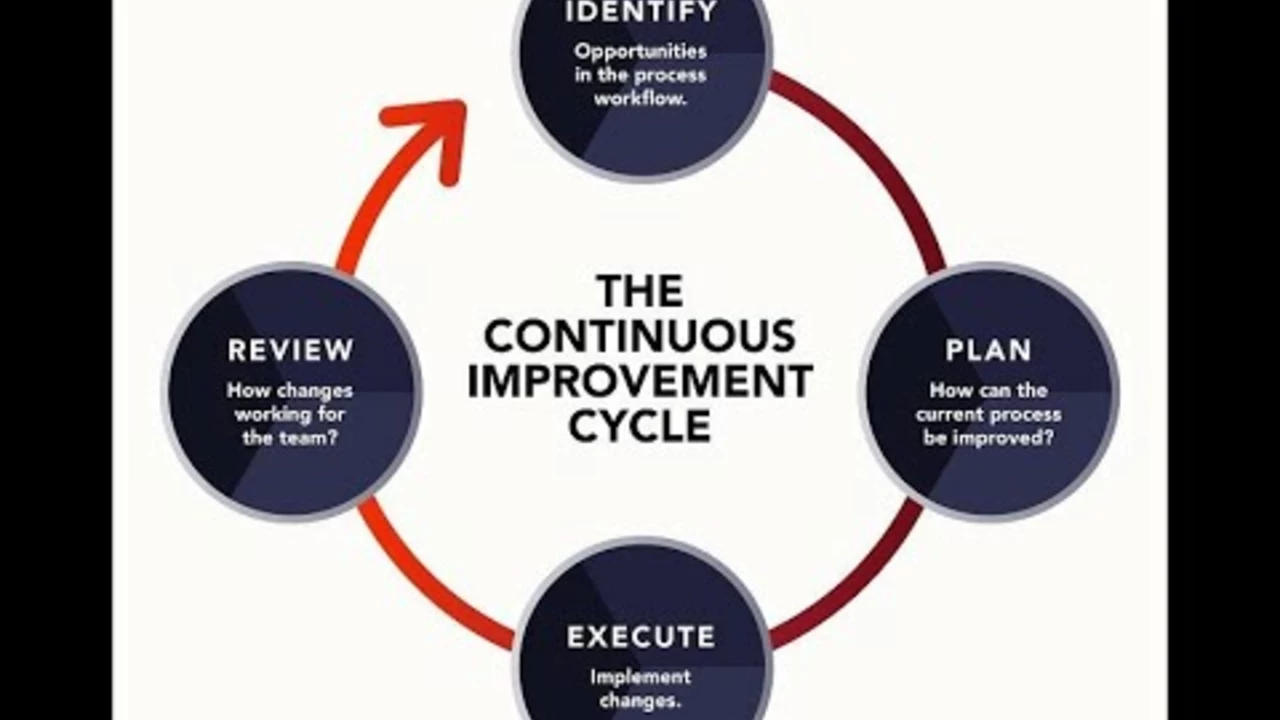How would you dramatically improve the education program?

Revisiting the Fundamental Building Blocks
Education is a complex structure, one that is always under construction, always up for growth. Like the architect diligently designing structures, tweaking the blueprint, adding reinforcements, it's never too late to revisit the program's fundamental structure and enrich its outputs. As Landon, someone who has weathered the storm of education, I can testify that there is always room for improvement. And dramatic improvement requires fundamental shifts, not just superficial changes.
Let's imagine the scenario focusing on a child's initial years of schooling. Take a moment and recall your own experiences, filled with fun, creativity, and exploration. Now observe how the continuous quest for higher grades slowly changed this. Naturally creative and inquisitive minds slowly veered towards memorization, leaving the joy of learning behind. In order to dramatically improve the education program, we must bring back that excitement and inquisition into our classrooms.
Modular, Holistic, and Inclusive Education
As someone who had always had an insatiable thirst for knowledge, the pigeonholing effect of our educational curriculum often left me feeling constrained, much like a round peg being fit into a square hole. I'm sure many students feel that they don't belong to the strict boundaries of the arts, science, or commerce subjects. On that note, let me take you on a tour of my vision for a modular, holistic and inclusive education system.
Our system tends to label students into specific boxes too early on, which can be severely limiting. I imagine an education system that evolves with the students, where they can dip their toes into various streams of knowledge until they find their calling, rather than being forced into choosing a path prematurely. This approach not only fosters a holistic understanding but also cultivates a society of inquisitive learners who are not just focused on excelling in their respective subject domains but are capable of applying their knowledge in versatile ways.
Augmenting Curiosity through Project-Based Learning (PBL)
Think back to the instances when you were a pupil. I remember when I was in school, the most memorable lessons were the ones where I was actively involved. When the textbooks were shut, and the real-world context was brought into the classrooms, learning became an adventure. To dramatically improve the education system, we need to tap into this natural inquisition by reframing how we deliver our lessons through Project-Based Learning (PBL).
PBL flips the conventional teaching model on its head by beginning with a question or a problem. What better way to stimulate curiosity than by asking our students a thought-provoking question? Accompanied by real-world tasks to provide practical knowledge, PBL steps away from the usual recitation and invites students to find their unique solution paths. It encourages collaborative learning, develops research and problem-solving skills, and more importantly, instills a love for learning.
Enhancing Teachers' Roles Beyond Instruction
Doing justice to the title of my life's primary educators, my teachers not only taught me the curriculum but also valuable life lessons. The role of a teacher goes beyond just delivering lectures. They are mentors, guides, and sometimes even friends. Dramatically improving the education program calls for an enhancement of teachers' roles.
In a revamped system, teachers would don the hat of learning facilitors, encouraging self-learning and critical thinking. Coaching models would replace traditional teaching methods, with teachers aiding in students' personal growth and emotional development. This means that they need to be well-trained and adequately supported to skillfully undertake this crucial role. After all, a thriving education program is as good as its teachers.
Embracing Technology
Being a tech enthusiast myself, I notice the potential of technology in transforming education. I'm not talking about swapping books for iPads, but more about leveraging technology to deliver personalized and adaptive learning experiences. Technology is not here to replace the traditional mechanisms but to complement them.
From offering accessible learning to students with differing abilities to creating a learning platform that can calibrate according to a student's progress, technology can personalize education like never before. Plus, with the wealth of information available at our fingertips, technology opens doors to a world of resources, moving beyond the constraints of textbooks.
Integration of Socio-Emotional Learning
Remember that time in school when I flunked my math test? I was devastated, couldn't face the fact that I had failed. I had never learned to deal with failure. I realized that for all the talk about academic resilience, the system never really equipped me with the emotional resilience to navigate through life's high seas.
The importance of socio-emotional learning in the curriculum cannot be understated. Students will inevitably face numerous challenges, and having the requisite emotional skills to face these issues can dramatically improve their learning journey. Therefore, the incorporation of socio-emotional learning in the program is imperative for nurturing well-rounded, resilient individuals.
In Conclusion, every revolution begins with a single step, and so will the dramatic improvement in our education system. Remember, these changes are like adding reinforcements to our existing structure, fortifying it to weather the future. As we strive to build a nurturing and effective education program, let's take these steps, and perhaps the generations to come will be witnesses to an education revolution that we ignited.